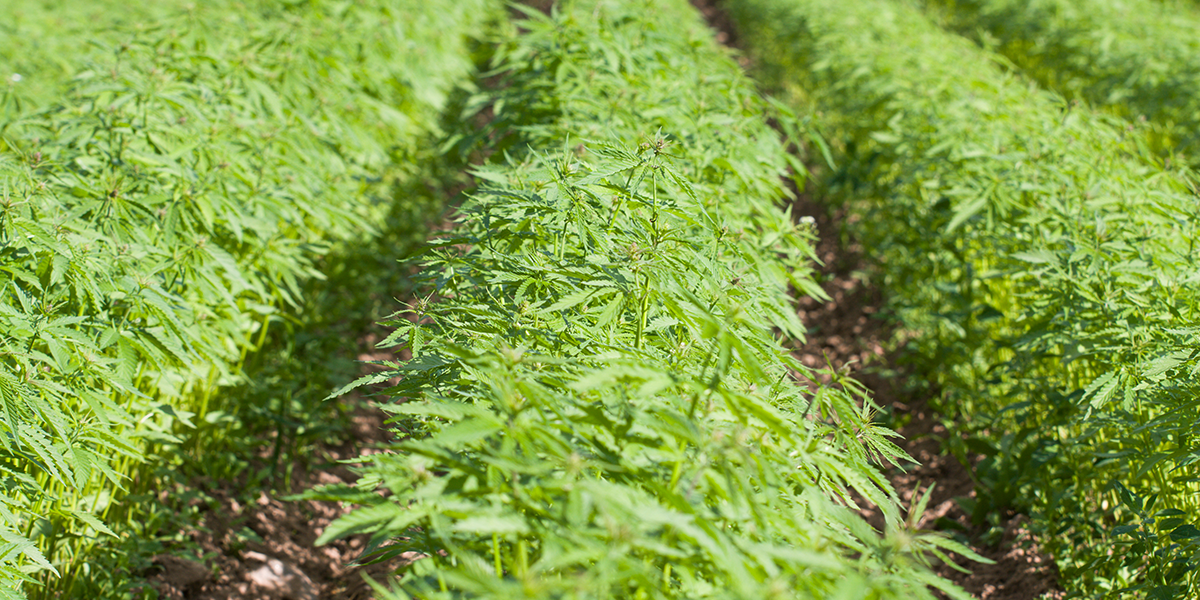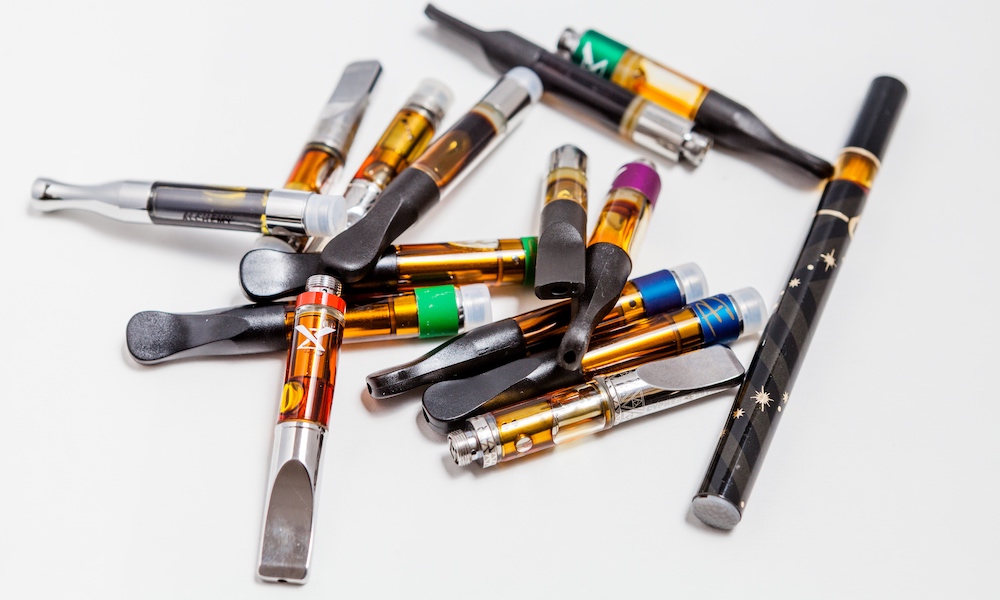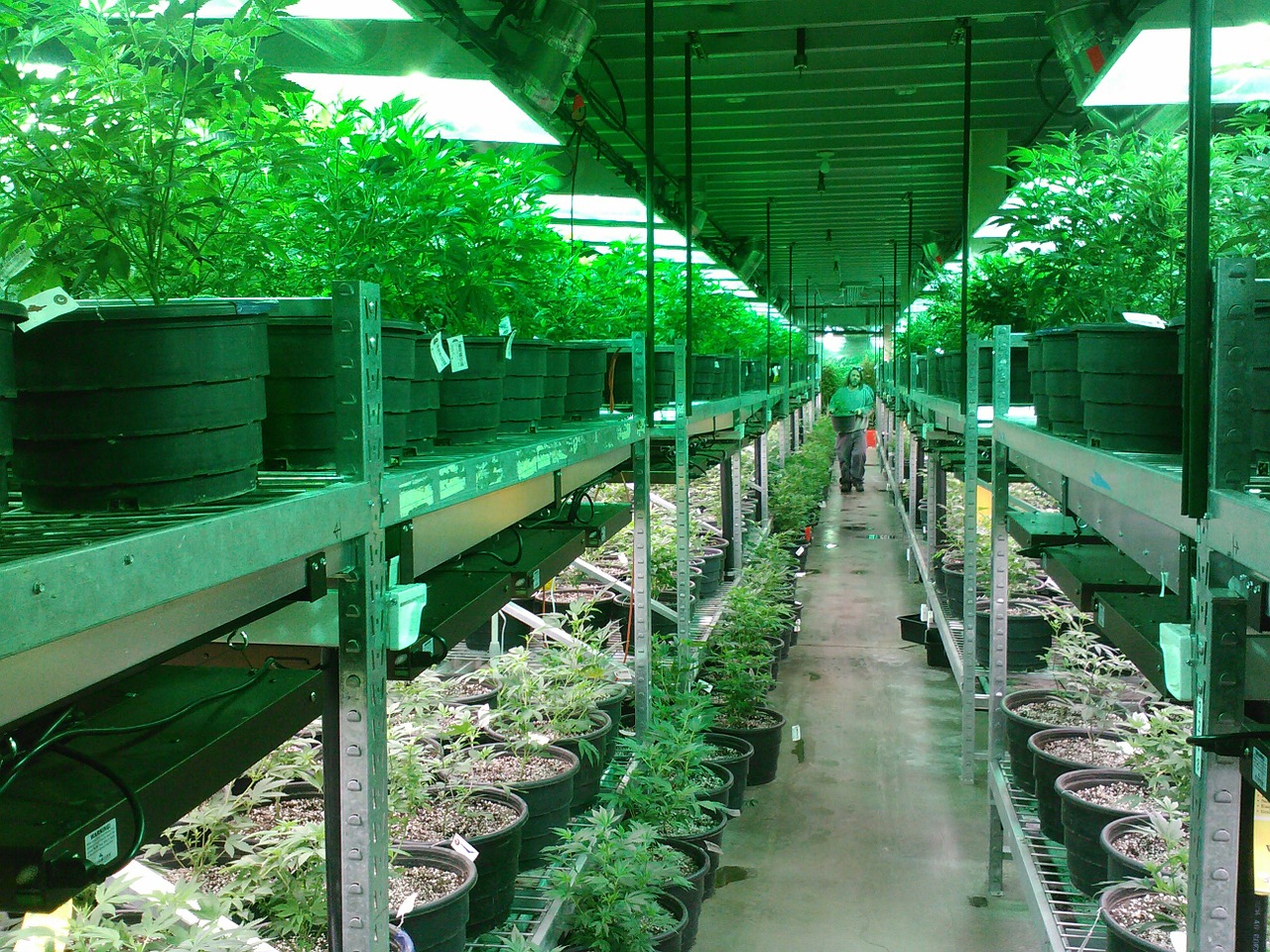 CBD products are now everywhere—health-food emporia, pharmacies, truck-stops. And pursuant to the 2018 Farm Bill, they are now legal—as long as the CBD is derived from “hemp” as opposed to what has traditionally been called “marijuana.” Hemp, as legally defined, is cannabis with under 0.3% THC—the psychoactive component of the plant, responsible for the long-stigmatized “high.”
CBD products are now everywhere—health-food emporia, pharmacies, truck-stops. And pursuant to the 2018 Farm Bill, they are now legal—as long as the CBD is derived from “hemp” as opposed to what has traditionally been called “marijuana.” Hemp, as legally defined, is cannabis with under 0.3% THC—the psychoactive component of the plant, responsible for the long-stigmatized “high.”
But even the hempiest hemp—rope, not dope, as they used to say—usually has some THC.

 The autumn of 2019 saw the United States' first hemp harvest since effective prohibition of the crop under the strictures of the Marihuana Tax Act in 1937. These strictures were overturned in the Farm Bill signed into law by President Trump in the closing days of 2018. This harvest was looked to eagerly across much of rural America, as legal hemp had been plugged as a salvation for the nation's struggling farmers—and the soaring popularity of CBD appeared to provide a booming market. The fashionable cannabinoid had also been legalized by the 2018 Farm Bill—when derived from hemp, or cannabis with less than 0.3% THC.
The autumn of 2019 saw the United States' first hemp harvest since effective prohibition of the crop under the strictures of the Marihuana Tax Act in 1937. These strictures were overturned in the Farm Bill signed into law by President Trump in the closing days of 2018. This harvest was looked to eagerly across much of rural America, as legal hemp had been plugged as a salvation for the nation's struggling farmers—and the soaring popularity of CBD appeared to provide a booming market. The fashionable cannabinoid had also been legalized by the 2018 Farm Bill—when derived from hemp, or cannabis with less than 0.3% THC. This year has seen a disturbing nationwide outbreak of lung injuries, some fatal, which researchers link to vaping—either of tobacco products or cannabis concentrates. A regulatory crack-down on the vaping industry has ensued—but amid serious confusion displayed by politicians and media alike.
This year has seen a disturbing nationwide outbreak of lung injuries, some fatal, which researchers link to vaping—either of tobacco products or cannabis concentrates. A regulatory crack-down on the vaping industry has ensued—but amid serious confusion displayed by politicians and media alike. California is moving toward adopting official "appellations" for cannabis, certifying a strain's regional origin. The concept is inspired by the wine industry, where such a certification system has long been in place in several producer countries. Wine appellations, often a mark of prestige, provide a model for what is now to be applied to high-end cannabis.
California is moving toward adopting official "appellations" for cannabis, certifying a strain's regional origin. The concept is inspired by the wine industry, where such a certification system has long been in place in several producer countries. Wine appellations, often a mark of prestige, provide a model for what is now to be applied to high-end cannabis. Having cannabis removed from the federal list of controlled substances has long been the holy grail of legalization advocates. Several bills have now been introduced on Capitol Hill to do exactly that. Do any stand a chance of becoming law in the current polarized climate?
Having cannabis removed from the federal list of controlled substances has long been the holy grail of legalization advocates. Several bills have now been introduced on Capitol Hill to do exactly that. Do any stand a chance of becoming law in the current polarized climate? As the cannabis industry is embraced by corporate power and finance capital, the patenting of strains, products and applications is an increasing concern. But the international patchwork of legality makes for a confusing environment. Illegality has served as a paradoxical break on privatizing of varieties. Growers and advocates are devising means to protect the genetic commons in the new cannabis order.
As the cannabis industry is embraced by corporate power and finance capital, the patenting of strains, products and applications is an increasing concern. But the international patchwork of legality makes for a confusing environment. Illegality has served as a paradoxical break on privatizing of varieties. Growers and advocates are devising means to protect the genetic commons in the new cannabis order. There has been significant progress toward cannabis legalization in the United States and globally over the past years, but pockets persist of the most repressive and reactionary prohibition. What are the prospects for expanding cannabis freedom in the coming year?
There has been significant progress toward cannabis legalization in the United States and globally over the past years, but pockets persist of the most repressive and reactionary prohibition. What are the prospects for expanding cannabis freedom in the coming year? A federal appeals court in Denver has held that protections under the Fair Labor Standards Act apply to "all workers"—including those in the cannabis industry. The ruling sets an important precedent, boosting efforts to unionize the new legal industry.
A federal appeals court in Denver has held that protections under the Fair Labor Standards Act apply to "all workers"—including those in the cannabis industry. The ruling sets an important precedent, boosting efforts to unionize the new legal industry.





Recent comments
1 day 46 min ago
4 weeks 1 day ago
7 weeks 6 days ago
11 weeks 6 days ago
12 weeks 5 days ago
22 weeks 5 days ago
26 weeks 5 days ago
27 weeks 6 days ago
27 weeks 6 days ago
48 weeks 6 days ago